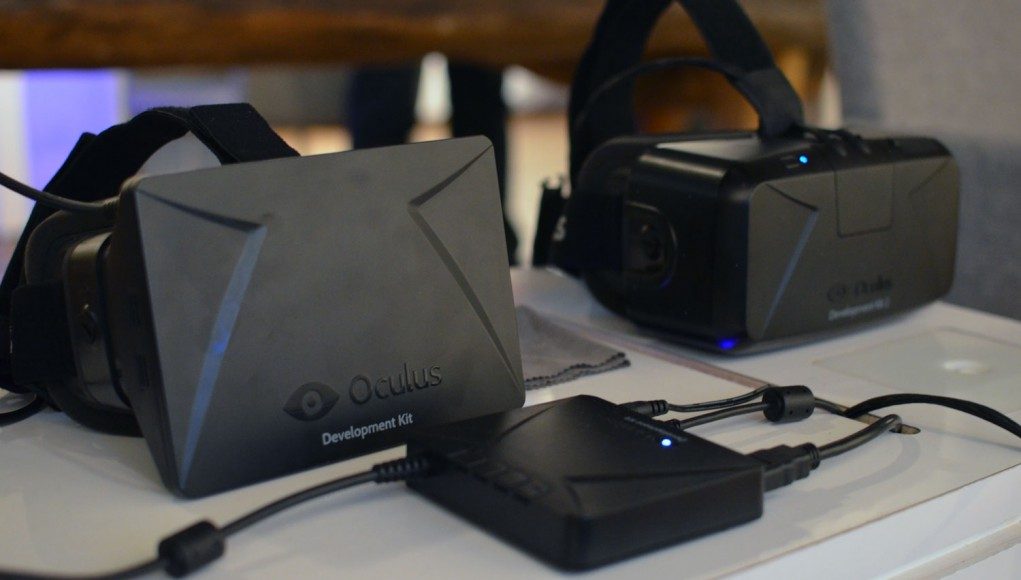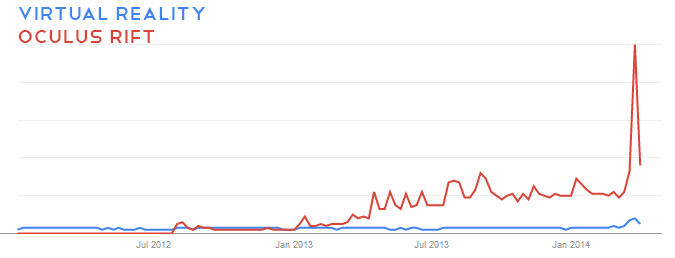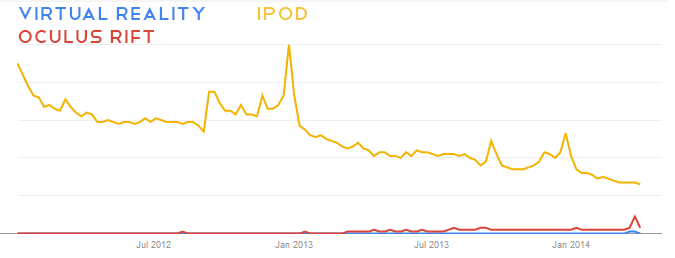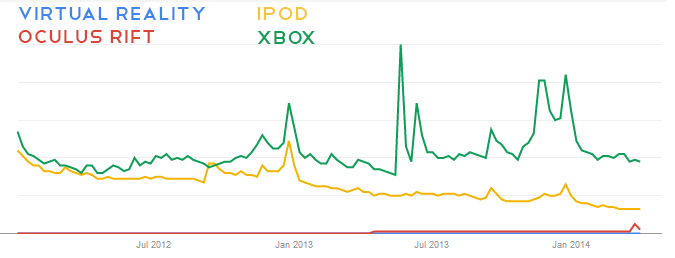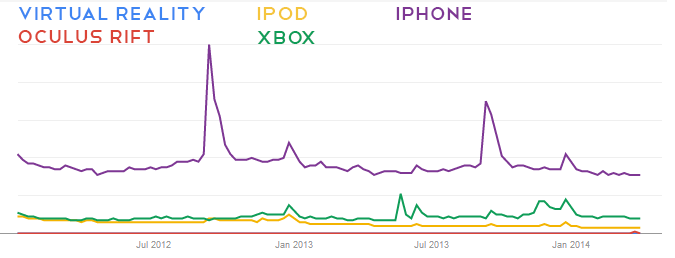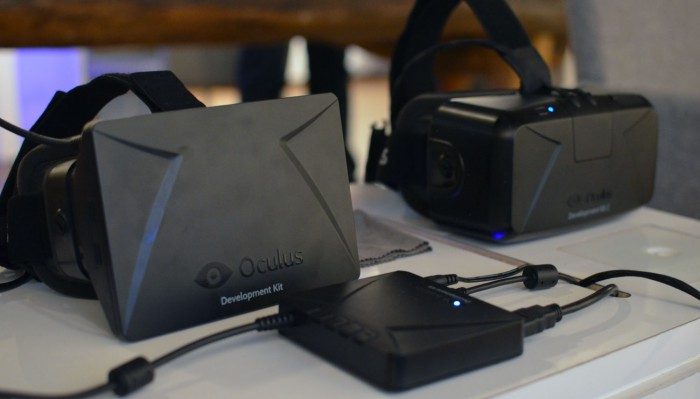 Virtual reality, with Oculus Rift as the industry front-runner, is poised to become the ‘next big thing,’ but it isn’t there just yet… in fact, there’s a long way yet to go.
Virtual reality, with Oculus Rift as the industry front-runner, is poised to become the ‘next big thing,’ but it isn’t there just yet… in fact, there’s a long way yet to go.
It’s easy, covering virtual reality so closely as Road to VR has been since 2011, to think that virtual reality is everywhere, when in reality we might only be looking where there is virtual reality.
Don’t get me wrong. Virtual reality is going to be huge. The Oculus Rift has kickstarted a new era of VR. It wasn’t a big business, many of them too jaded by the VR crash of the early 90s, but instead the collective support of thousands of normal folks who believed in Palmer and Co. and were willing to put up the cash to prove it. And then came several impressive rounds of investment, followed by Facebook’s surprise acquisition. With that latest development, they’re at the peak of their notoriety (thus far).
If you’ve been to the last few major game conventions (or even just been following the news) you’d surely conclude that virtual reality is the current buzzword of the industry. Without spending a dime on advertising, news of VR and Oculus have come out of these conventions with, from what I’ve seen, as much fervor (if not more so) as the latest generation of game consoles (who, mind you, have spent untold millions on ad campaigns, product reveals, and content agreements).
But what portion of the mainstream do these conventions, which are attended by an immense minority of the overall gaming population, represent?
Let’s see if I can illustrate a little perspective for you. We’ll use Google Trends to gauge the level of mainstream awareness of some terms since 2012. First, let’s look at “virtual reality” and “oculus rift.”
Amazing! According to our little chart, “oculus rift” has completely supplanted “virtual reality.” For the portion of the mainstreamers who have heard of the Oculus Rift, it is likely to have better name recognition than the term “virtual reality.” These will be the people who, when you show them any VR headset, will say, “Oh it’s an Oculus Rift!” just like everyone’s mom used to call any MP3 player in the early days of that market an “iPod.”
Those of you who paid attention in school should be saying to yourselves, “what’s the scale of the Y axis?” Indeed… how accurate is our internal model of the Oculus Rift’s popularity compared to its actual popularity?
Speaking of the iPod, let’s use that as an example to see how the Oculus Rift stacks up in terms of mainstream awareness.
Hey, not too bad. Oculus, which doesn’t even have a consumer product out, is being search about 1/4 as much as “ipod.” But, the iPod has been largely replaced by music-capable smartphones. Let’s see how “oculus rift” compares to one of the big game consoles, which I think we can all agree have achieved mainstream status.
Uh oh… now things are looking a bit more stark. “Virtual reality” is basically no longer even ranking relative to our other terms. “Oculus rift” is looking closer to 1/8 the search volume for “xbox,” and that’s being generous, given that the spike that we’re seeing is due to the Facebook acquisition.
Just to throw the cherry on top, let’s add in the term “iphone” to see a consumer tech products that’s even more popular than a game console (how many people do you know that don’t own a smartphone?)
This is amazing to see, for me personally, because I’ve been following the segment so closely and I’ve attended the conventions, and I’ve seen with my own eyes and heard with my own ears how excited people are about the Oculus Rift (and how many of those people there are at those places). But this is clearly not a representative sample of the population at large, it’s a highly concentrated mix of people who live and breath gaming and tech.
So what does this mean for Oculus? It means nothing more than that they still have a long road ahead before they truly reach mainstream awareness (and I truly believe they, along with virtual reality in general, will make it there).
And while this might help us put things into perspective from the top down, it does the same from the bottom up. This is what we should expect, especially for a company that isn’t yet selling a consumer product. It’s actually quite amazing how much attention Oculus is getting. In some two years they’ve gone from not existing to holding a significant ranking next to a mainstream game console made by a multi-billion dollar company. Oculus is speeding down the road to VR and doesn’t seem to be stopping any time soon.

